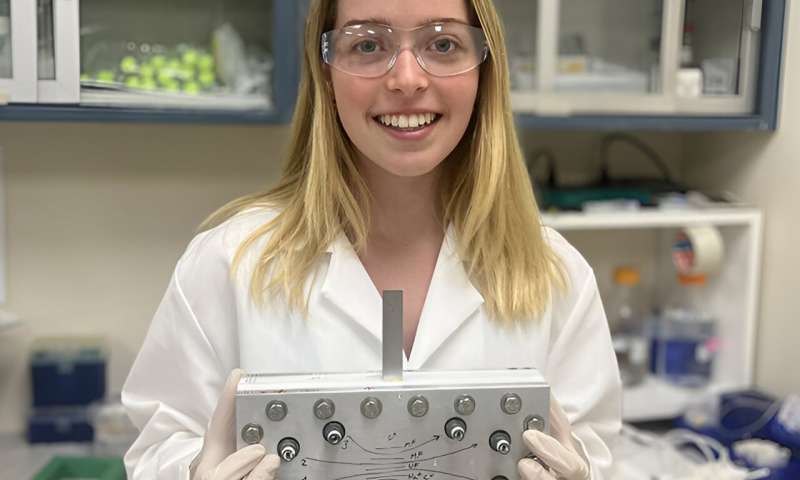Synthetic DNA diagnoses COVID, cancer

At first glance, the search for life beyond Earth might not seem related to human illness. But to biochemist Steven Benner, the connection is clear.
"In diagnostics for infectious disease, you're looking for alien life inside of a patient," said Benner, who has spent nearly two decades conducting NASA-funded research on what alien life might look like at the molecular level.
"Of course, we actually know the structures of the genetic molecules in the coronavirus that is causing COVID, for example, so it's actually a bit easier to build a diagnostics assay to detect COVID than it is to build an agnostic life finder to search for Martian DNA, whose structure would be unknown," he said.
Benner is the cofounder and CEO of Firebird Diagnostics LLC, based in Alachua, Florida, which sells synthetic DNA and molecule packages to researchers, some of whom are using them to develop tools to detect and treat ailments like cancer, hepatitis, and HIV. The company sold COVID tests during the pandemic and has the technology to test for influenza and respiratory syncytial virus, or RSV, as well.
Benner holds that while some of what we know about biochemistry on Earth is universal, most is almost certainly Earth-specific. For example, Earth-based, natural DNA—the molecules that carry genetic instructions—is composed of four nucleotides that are sometimes described as building blocks. "What if DNA had six or eight different building blocks?" Benner asked.
To answer such basic questions, he and partners went into the lab and made DNA-like molecular systems with six and eight nucleotides, based on research funded in part by NASA's Astrobiology Program. These systems add to the four building blocks in Earth-based DNA two or four more synthetic nucleotides.
The resulting synthetic or "alien" DNA has structures that are different from natural DNA but are still able to hold and copy genetic information. Most importantly, the platform can support molecular evolution, the fundamental feature of biology—and life.
Mary Voytek, head of the Astrobiology Program at NASA Headquarters in Washington, said Benner's work has shown NASA that there are alternatives to Earth-based biological molecules. "This helps us understand what else is possible and might be found in life beyond Earth," she said.
Benner's molecules can also be evolved to bind to targets important to diseases, such as COVID-19 viruses or breast or liver cancer cells. This initial binding event can be the first step in finding these disease-causing viruses and cells and delivering drugs to them. Because it has more building blocks, the synthetic "alien" DNA has more ways to bind more tightly and selectively than natural DNA. This gives more accurate test results and better therapy targeting, Benner said.
Many diagnostic processes also require a second binding event for detection. Here, the initial binding event attaches to a fluorescent "tag" that has been added to the sample, making the targeted molecule visible. Benner's synthetic DNA can promote this second binding as well.
Firebird sold COVID tests based on these processes overseas and in the United States under emergency authorization from the Food and Drug Administration (FDA), primarily through its partner GenePath Dx. The company's other diagnostic capabilities are available only for research purposes because they don't have FDA approval.
Benner said Firebird sells about $1 million a year in "alien" DNA. His work with NASA has broadened the search for life on other planets and moons.
Benner said profits from Firebird have helped launch the Agnostic Life Finding Association to seek life on Mars in ways that would not overlook this type of alien molecular biology.
Provided by NASA